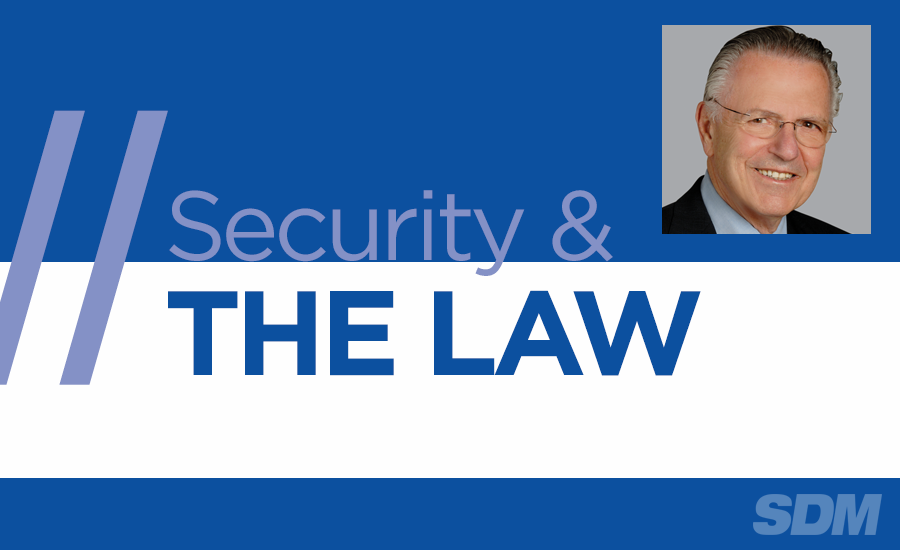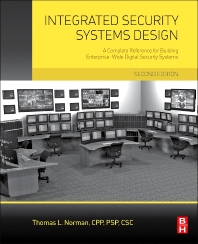Plaintiff-appellants (appellants) filed a complaint against the city of Cincinnati, the alarm administrator for the city, and the administrator in her personal capacity, challenging the constitutionality of the city’s ordinances regulating alarm systems.
The lower court granted the city’s motion for summary judgment and the appellant appealed. In 1986, the city enacted an ordinance to regulate alarm systems because of the high cost of responding to false alarms.
Cincinnati Municipal Code requires alarm businesses to register with the False Alarm Reduction Unit of the Cincinnati Police Department and provides penalties for failure to register. Alarm businesses must pay a registration fee of $250 annually. If an alarm business fails to register, the city imposes a $1000 civil penalty for each request for a police response related to an alarm system by an unregistered alarm business or for each request by an alarm user for registration of an alarm system installed by an unregistered alarm business.
Alarm users must also register before an alarm system is activated. Residential alarm users must pay $50 every two years and nonresidential alarm users must pay $100 every two years. The city imposes a $100 civil penalty on an alarm user for using an unregistered alarm system, but the penalties may be waived if the alarm user completes registration within 21 days of the first notice of a violation. All fees imposed on both alarm businesses and alarm users are nonrefundable, nontransferable, and location-specific.
The appellants are alarm businesses and alarm users in the city. They alleged that the code violates their rights to free speech, to petition the government for redress and to defend themselves and their property. They also alleged that the regulatory scheme was an unconstitutional tax. Among other things, the appellants sought an injunction and damages, including a return of the fees paid. For purposes of this article, the only issue we will deal with is whether the fees paid to the city was a tax.
Among documents filed by the appellants was an affidavit of the owner of a security alarm installation company who stated that her company adheres to industry standards. She stated that the alarm monitoring agents in the city are “live people” who place a phone call to the police. They do not call 911, but instead use the number the police have asked them to use. The agents cannot force the police to respond. They simply pass the information to the police, who decide how to respond.
The affidavit stated that the company must pay the annual registration fee to operate and that if all jurisdictions imposed an annual registration fee, “It would make it impossible for small local alarm business . . . to operate profitably and stay in business.” Finally, she stated that alarm user registration fees do nothing to reduce the number of false alarms, except for the possibility that those fees may cause fewer homeowners to install security alarms in the first place.
On appeal, the court was concerned with the issue of fees versus taxes. The court pointed out that although no single test exists for making the determination whether a given assessment is a permissible fee versus an illegal tax, the court indicated there are four factors that tend to indicate that the assessment is a fee as opposed to a tax: 1. the assessment is “imposed in furtherance of regulatory measures to address a specified issue”; 2. the assessment is not placed in the general fund, but is used only to fund the specified purpose; 3. the assessment is “imposed by a government in return for a service it provides”; and 4. the assessment involves “a specific charge in return for a service.”
The court indicated that in determining whether an assessment is a tax or a fee, it should consider the entity that imposes the assessment; the parties upon whom the assessment is imposed; and whether the assessment is expended for general public purposes, or used for the regulation or benefit of the parties upon whom the assessment is imposed.
In this case, the court pointed out that there are no services provided directly to the payers of the assessments that are not provided to all city residents. The city discusses the costs and the problems associated with dispatching officers to the scene of an alarm, where the police have little knowledge of what was actually occurring at the scene. The city is not obligated to respond to alarms in any specific way; it does not entitle alarm businesses and alarm users to any particular response from the city or empower alarm businesses or users to enforce a right to any specific response from the city. There are no separate or additional services provided to those paying the fees. All taxpayers in the city are entitled to police protection. The city has not given anything to them for which it can ask for the assessments in return. The assessments, particularly the registration fees, do not bear a reasonable relationship to protection, benefits or opportunities provided by the city to those paying the assessments.
Based on the above analysis, the court held that the assessments imposed by the city violate the due process clause of the Ohio and United States Constitution.
Therefore, the court sustained the appellant’s assignments of error and reversed the trial court’s judgment granting summary judgment in favor of the city. The court then remanded the matter to the trial court for the court to grant an injunction enjoining the city from imposing the alarm assessments under the Cincinnati Municipal Code.





